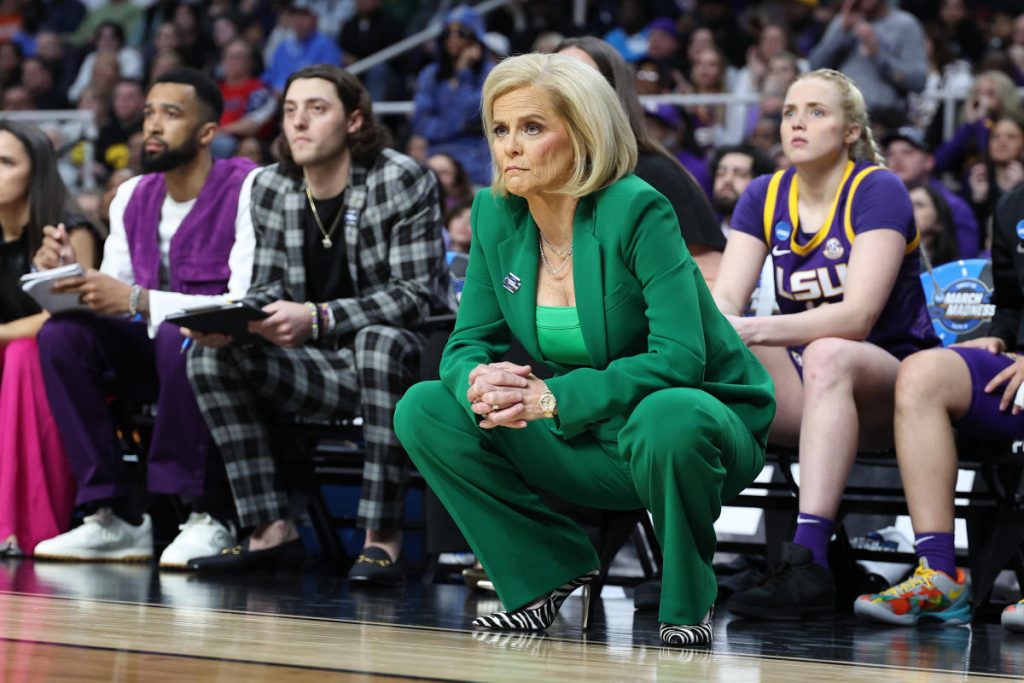LSU’s pregame routine has unexpectedly become a political issue after their Elite Eight loss to Iowa. The controversy arose when Louisiana Governor Jeff Landry called for a policy mandating that student-athletes be present for the national anthem or risk losing their scholarships. Several conservative commentators criticized LSU’s players and coaches for not being on the court during the anthem, despite it not being a form of protest. LSU head coach Kim Mulkey clarified that the team was following their usual pregame routine and were not intentionally skipping the anthem.
The statement from Governor Landry sparked confusion among LSU administrators, with the University of Louisiana System Board of Supervisors chair expressing difficulties in enforcing such a policy. The state’s commissioner of higher education also noted that the board of regents does not have jurisdiction over scholarship decisions. An LSU spokesperson pointed out that both the men’s and women’s basketball teams have been staying in the locker room during the anthem for several seasons, with the anthem typically playing 12 minutes before the game while the teams are finalizing their preparations.
This incident is not the first time the national anthem has been a point of contention at LSU. In the past, unnamed Louisiana legislators threatened funding for players who kneeled during the anthem, similar to Colin Kaepernick’s protests against racial injustice. Then-LSU president F. King Alexander defended the team’s practice of remaining in the locker room during the anthem. The governor’s call for a policy regarding athlete presence during the anthem stirred debate on the appropriateness of such mandates and the implications for student-athletes.
The debate around LSU’s pregame routine raises questions about the intersection of sports, politics, and patriotism. While some view the national anthem as a symbol of unity and respect for those who serve, others argue that forcing athletes to be present during the anthem infringes on their rights to protest peacefully. LSU’s response to the controversy exemplifies the delicate balance between acknowledging national symbols and allowing individual expression. As discussions continue, the implications of Governor Landry’s proposal on the autonomy of student-athletes and the role of collegiate athletics in social issues remain at the forefront.
The incident also sheds light on the complexities of navigating political pressures in the realm of college sports. With stakeholders ranging from state officials to university administrators to student-athletes, finding common ground on issues like the national anthem can be challenging. LSU’s history of dealing with political demands related to player behavior during the anthem underscores the need for open dialogue and understanding between all parties involved. Moving forward, addressing these challenges requires a thoughtful, inclusive approach that respects the perspectives and rights of everyone involved.
Ultimately, the controversy surrounding LSU’s pregame routines serves as a reminder of the broader societal debates around patriotism, protest, and athletic expression. As sports continue to intersect with political discourse, institutions like LSU must navigate the complexities of balancing tradition, regulation, and individual rights. The incident highlights the importance of engaging in constructive dialogue and upholding principles of fairness, respect, and inclusivity within collegiate athletic programs. By addressing these issues thoughtfully and collaboratively, LSU and other institutions can work towards fostering a positive, inclusive environment for student-athletes, fans, and the community at large.


